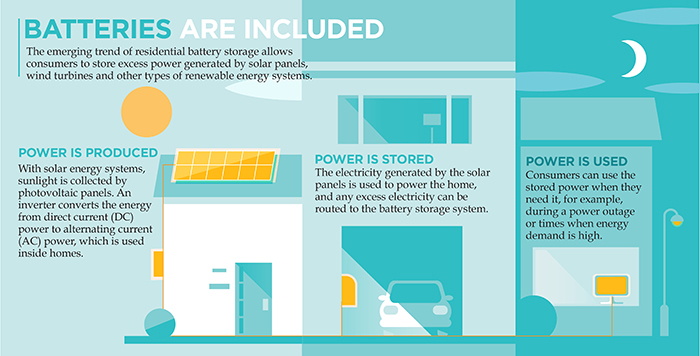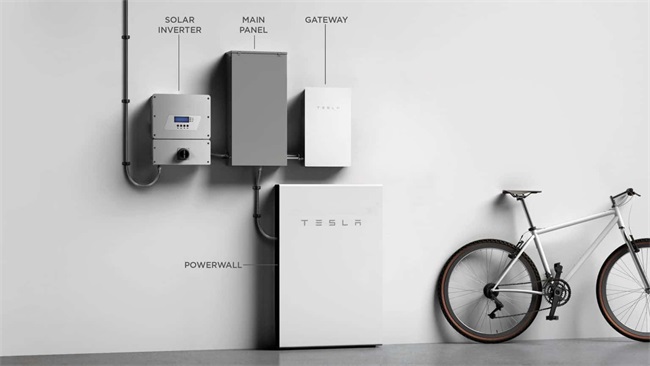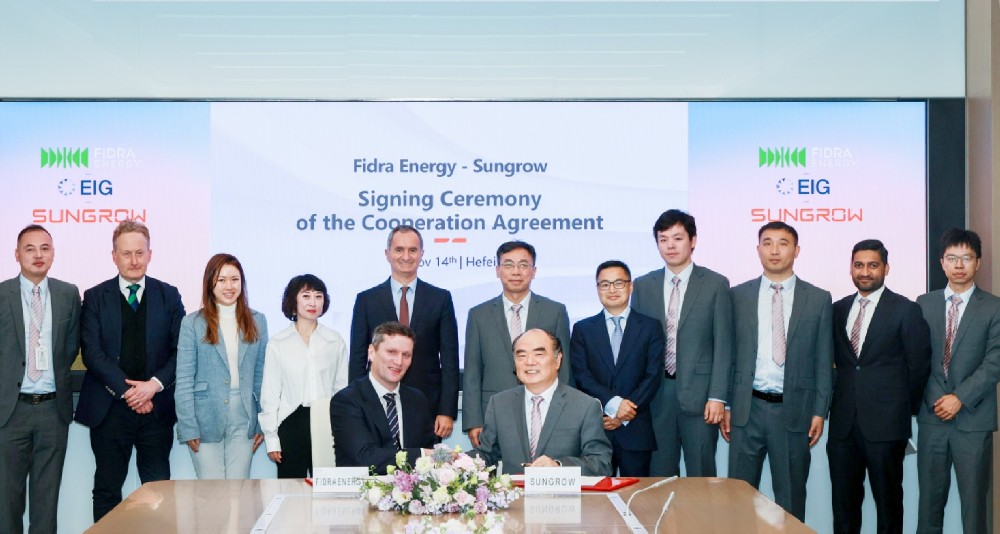Residential Battery Storage for Solar Trends: Market and Technology Analysis

With the accelerated global energy transition, the adoption of residential solar power systems continues to rise, and the accompanying battery storage systems (Residential Battery Storage for Solar) are becoming an important component of home energy management. Battery storage not only helps balance the fluctuations of solar power generation, increasing energy use efficiency, but also aids users in achieving energy autonomy, reducing electricity costs, and enhancing the stability of power supply. Therefore, the combination of solar energy and battery storage systems is seen as a crucial pathway for driving the green energy transition in households.
In this article, we will provide a comprehensive analysis of the current status, technological trends, market dynamics, and future prospects of the residential solar battery storage market, with a focus on technological innovations, market development trends, and the challenges that lie ahead.
The Residential Solar Battery Storage Market
Market Development Status
The global residential solar battery storage market is experiencing rapid growth. According to reports from market research institutions, the global residential battery storage market reached a value of 10 billion USD in 2023, and it is expected to exceed 30 billion USD by 2030, with an annual growth rate of over 20%. North America, Europe, and the Asia-Pacific region are the primary markets for residential solar battery storage.
Market Drivers
Solar Power Adoption: As photovoltaic technology continues to mature and installation costs decline, more and more households are choosing to install solar panels. However, solar power generation is intermittent and fluctuating, requiring battery storage systems to solve this issue and ensure a stable energy supply.
Energy Costs and Electricity Price Fluctuations: The volatility of electricity prices makes it more attractive for households to use storage systems to reduce electricity bills. By storing electricity when prices are low and using it when prices are high, consumers can significantly reduce their energy expenses.
Energy Supply Stability and Energy Autonomy: During extreme weather events or grid failures, residential battery storage systems can provide backup power, ensuring the reliability of energy supply for households. This is particularly critical in remote or power-unstable areas where the demand for battery storage systems is more urgent.
Government Policy Support: Many countries and regions have introduced policies and subsidy programs aimed at encouraging consumers to install solar and storage systems, which has spurred rapid market growth.
Residential Solar Battery Storage Technology Trends
Residential Solar Battery Storage Mechanism
Emerging trends in residential battery storage allow consumers to store surplus power generated by solar panels, wind turbines, and other types of renewable energy systems.

Energy Generation: In solar systems, sunlight is captured by photovoltaic panels. Inverters convert the direct current (DC) into alternating current (AC), which is used for household electricity.
Energy Storage: The power generated by the solar panels is used to supply the home, and any surplus power can be directed into the battery storage system.
Energy Use: Consumers can use stored electricity when needed, such as during power outages or peak energy demand times.
Maturity and Application of Lithium Battery Technology
Currently, lithium-ion batteries are the most common technology used in residential solar battery storage systems. Lithium batteries have high energy density, long service life, and high charge/discharge efficiency, making them the mainstream choice for home solar storage. As technology continues to advance, the cost of lithium batteries is decreasing year by year, and in the coming years, the cost of residential storage systems is expected to drop further, driving their widespread adoption in more homes.
The Rise of Solid-State Batteries
Solid-state batteries, as a new energy storage technology, are gaining attention due to their higher energy density and improved safety. Compared to traditional liquid batteries, solid-state batteries use solid electrolytes, which effectively reduce the risks of fire and leakage. Although solid-state batteries are still in the research and development stage, they are expected to enter the market in the coming years, offering a new option for residential storage.
Intelligent Energy Management Systems
With the ongoing development of smart home technologies, residential battery storage systems are evolving toward smart, interconnected solutions. Intelligent energy management systems can monitor household electricity consumption, solar power generation, and battery status in real-time, optimizing battery charge/discharge strategies based on weather forecasts and energy demand data. Additionally, users can remotely control and adjust storage systems via mobile apps, enhancing energy usage flexibility and convenience.
Virtual Power Plants (VPPs) and Home Energy Networks
A virtual power plant (VPP) is a system that connects multiple distributed home storage systems to create a collaborative, large-scale decentralized energy network. Through VPPs, users can not only better manage their energy usage but also provide backup power to the grid, helping to stabilize grid loads. The promotion of the VPP model is expected to make residential storage systems play a more important role in the future energy market.
Market Participants and Competitive Landscape
Tesla
Tesla is one of the leading companies in the residential solar battery storage market. Its Tesla Powerwall series of battery storage products are not only perfectly integrated with Tesla’s solar roof system but also feature highly intelligent energy management functions. Tesla offers a comprehensive home energy solution by integrating battery storage with electric vehicles and solar systems.
Sonnen (Germany)
Sonnen is a leading residential storage solution provider in Europe. Its SonnenBatterie products have achieved significant market share in countries like Germany, Italy, and Spain. Sonnen focuses on the integration of renewable energy and is dedicated to providing users with smart and environmentally friendly storage systems.
LG Chem (South Korea)
LG Chem is a global leader in battery manufacturing, and its residential battery storage systems are widely used in homes and commercial projects around the world. LG Chem’s storage systems utilize advanced lithium battery technology, offering high energy density and long service life, making them highly favored by consumers.
Other Competitors
In addition to the above companies, other energy companies and emerging firms, such as Enphase, BYD, and Panasonic, are also actively entering the residential storage market. These companies are driving market competition and technological progress through continuous innovation and product optimization.
Residential Battery Solar Storage Future Challenges
Cost and Price Pressure
Although the price of lithium batteries has decreased in recent years, storage systems still represent a high investment, especially for price-sensitive consumers. In the future, as production scales increase and technology advances, the price of battery storage systems is expected to further decrease, promoting their wider adoption in the market.
Policy Support Uncertainty
Government policies and subsidy programs are crucial for the growth of the residential storage market. Differences in policies across regions may result in varying market development speeds. Therefore, companies need to closely monitor policy changes and adjust their strategies accordingly.
Battery Recycling and Environmental Impact
With the widespread use of storage systems, battery recycling and environmental concerns are increasingly coming to the forefront. In the future, companies will need to develop more efficient battery recycling technologies to reduce environmental impact and ensure the sustainability of battery usage.
Technology Integration and User Experience Enhancement
Future residential storage systems will not only need to be highly efficient but also better integrate with household solar systems, appliances, and the grid. Improving user experience, optimizing energy management, and simplifying system complexity will be key factors in market competition.
In 2024, the residential solar battery storage market is expected to maintain strong growth. With the widespread adoption of solar technologies, the gradual reduction of storage costs, and continued policy support, residential storage systems will see broad application globally. Technological innovations, especially in intelligent management systems and new battery technologies, will create new opportunities for the market. Leading companies like Tesla, Sonnen, and LG Chem will continue to drive market development, but as competition intensifies and technology advances, the residential storage market will become more competitive.
In conclusion, the adoption of residential solar lithium battery storage systems is a key step toward achieving household energy autonomy and a green energy transition. In the coming years, the market will witness new growth and technological innovations, driving a profound transformation in global household energy usage. We hope you seize this opportunity and explore cleaner, more efficient energy solutions with us at EnergyX, helping your household take the lead in the green energy transition.

